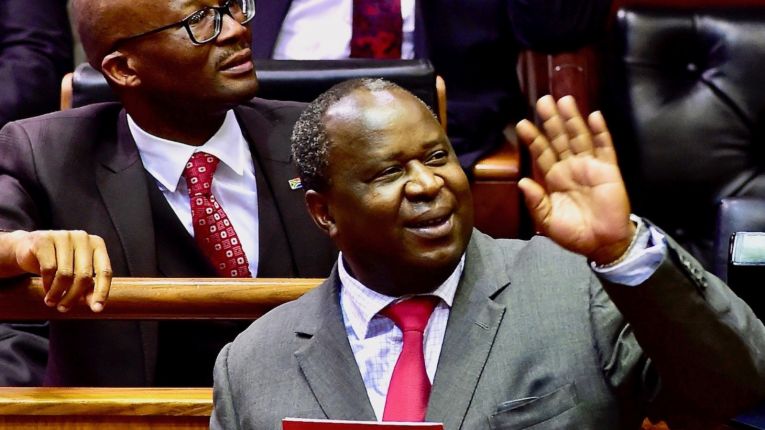We all have them. Those apps we open without thinking. Not because we need anything in particular, but because they feel… safe, in some…
Startups, do you have a tip for Tito on how to transform SA economy?

The Minister of Finance Tito Mboweni is calling for comments for a new economic strategy for South Africa and tech startups and those that assist them should get stuck in commenting.
After all, who knows the challenges that a business faces, better than a business person?
Mboweni’s call is based on a discussion paper (opens as a PDF) published yesterday by the National Treasury.
Finance Minister Tito Mboweni is calling on suggestions for a new economic strategy. Startups and those that assist them should comment
The National Treasury said in a statement yesterday that the aim of the paper is to translate the broad outcomes of inclusive growth, economic transformation, and competitiveness into specific programmes and draw on a range of domestic and international literature to support these policy priorities.
Tech startups face challenges
Tech startups one can argue have less to worry about when it comes to red tape or regulations than other small businesses (things like waiting months for payment for work from government or abiding by bargaining council rules).
This is because such firms don’t do much work for the state and because much of their assets are tied up in intellectual property (IP) rather than in large teams of staff or machinery and buildings — making it easier to bypass many of the government’s burdensome regulations.
Yet this doesn’t mean tech startups have it easy.
A report in February by startup advocacy body Simodisa lists the sector’s key challenges as the country’s onerous exchange control regulations (though this has improved somewhat), labour laws and the research and development (R&D) tax incentive administered by the Department of Science and Technology which has failed to assist startups (see this story).
In addition, most respondents cited the country’s BEE codes as placing more challenges on small businesses than before, including on things like workforce composition for small companies unless they are 51% or more black-owned.
How do we make tech sector more diverse?
Yet South Africa’s business sector still has some way to go before it can be considered transformed.
To be fair things are changing. A 2017 report by Trade and Industrial Policy Strategies (TIPS), noted that the percentage of black-owned small business in the formal sector grew from 38% of such firms in 2002, to 49% in 2015 (see also this blog post by the author).
But this still lags far behind the national population, where black people make up over 90% of South Africans.
Looking at the tech sector, the country still has too few successful black tech startups. White tech founders still account for the overwhelming majority of SA tech investment deals.
Part of the problem is that the country has too few black investors, making it difficult (unlike white founders) for such founders to source funding from those in their immediate network (see this story).
This, while women tech entrepreneurs are barely present. While there are no figures on the percentage of annual venture capital (VC) and angel investment that goes to SA tech startups founded by women, calculations by Ventureburn reveal that they make up as little as 4.5% of all disclosed deals concluded in SA since 1 January 2018 (see this story).
Despite this, the Ventureburn Tech Startup Survey last year suggests that the number of black tech startups is growing, but compared to white-owned startups, most are still struggling to generate revenue (see this story).
The survey, which canvassed 153 startup founders, reveals among other things that while 15% of SA tech startups founded by white entrepreneurs last year reported turning a profit, just seven percent of their black counterparts are making a profit.
While there are promising initiatives underway that can help promote more black and women-owned startups (initiatives such as the SA SME Fund, AlphaCode and Dazzle Angels) more needs to be done.
The idea for a new economic plan may be well intentioned. But past experience has shown up the government’s ability to implement its plans. Will this be just another paper exercise?
Send your comments may be sent to Rita.Coetzee@treasury.gov.za by 15 September.
Feature image: Finance minister Tito Mboweni by GovernmentZA via Flickr (CC BY-ND 2.0, cropped)

